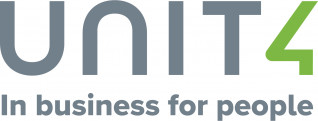Municipal Procurement Is More Than Just RFPs
Over the past few months we’ve been out at a number of municipal conferences and events, and it always surprises me to hear the number of folks who think municipalities are only able to procure goods or services via the RFP (Request for Proposal) process. They express their dislike for the process and they report the process discourages many small and medium enterprises from attempting to find work in municipalities.
No doubt, in the municipal sector procurement is a dynamic, sometimes complex process. However, what many are not aware of is that there is a variety of procurement methods available to municipalities to procure the goods and services they need. The procurement of consulting and professional services still must be a competitive process, but whether you’re a large company or a small or medium consultant or professional enterprise, it is still possible to acquire work in municipalities without ever needing to respond to a RFP.
Municipalities must comply with the procurement requirements set out in the MunicipalAct,2001,S.O.2001,Chapter 25, Section 270(1) 3. The legislation requires municipalities to develop policies tobe adopted on the types ofprocurement processes thatwill be used, the goals ofeach, the circumstances under which eachtype will be used, and the circumstances where a tendering process is not required.
Here are some of the procurement methods municipalities can employ to procure goods and services.
1. Request for Proposal (RFP) – used to solicit solutions for the delivery of complex goods, services or constructionforobtaining uniqueproposals designed tomeet broad outcomes toa complex problem or need forwhich thereis no clear or single solution.
2. Request for Tender (RFT) – used to acquire goods and services based on stated terms and conditions and forobtaining competitive bids based on precisely defined requirementsfor whicha clear or single solution exists.
3. Request for Quotation (RFQ) – is where the municipality specifies the product or service and the criteria is based solely on price. The goals are the same as for Request for Tender,except thatbid solicitation is done primarily on an invitational basis from a pre-determined bidders list – but maybe supplemented with public advertising ofthe procurement opportunity.
4. Request for Expression of Interest (RFEI) – is a procurement used to determine the interest of the marketplace to provide goods or service(s) which the agency is contemplating purchasing.
5. Request for Information (RFI) – isarequestused asageneralmarketresearchtooltodetermine whatgoodsandservicesareavailablethat maymeetbusiness/operationalrequirements and acquisition strategies.
6. Request for Pre-Qualification (RFPQ) – is a procurement document used to solicit financial stability, technical information,productorservice suitabilityfrompotentialvendorsandmeasured againststatedevaluationcriteria. Successfulvendor(s) are pre-qualifiedorshort listedtobidonspecificcategoriesofworkor providespecifictypesofgoodsorservices,or respond to a particular RFP or RFT.
7. Informal, Low Value Procurement – used toobtain competitive pricing fora one-time procurement in an expeditious and cost-effective manner through phone, fax,e-mail, other similar communication method, vendor advertisementsor vendor catalogues.
8. Non-Competitive Procurement/Invitational Competitive Procurement – in some circumstances, competitive procurements are not required. Municipalities can invite three or more qualified suppliers to submit written proposals to supply goods or services as specified by them. The goal is toallowfor procurement inan efficient and timelymanner withoutseeking competitive pricing.
Non-competitive procurement includes sole sourcing and single sourcing. Sole sourcing is the procurement ofa good or service thatis unique toa particular vendor and cannot be obtained from another source. Single sourcing is the procurementofa good or service from a particular vendor rather than through solicitation ofbids from other vendors who can also provide the same item.Single sourcing may be the best course totake in some circumstances, but it is important for the municipality tobe transparent about what those circumstances will be.
Typically, non-competitive procurement is used in the following circumstances:
- when there is a statutory-or market-based monopoly on the item
- when no bids were received inacompetitiveprocess
- when the required item is covered by an exclusive right such as a patent, copyright or exclusive licence
- when the purchase is already covered by a lease-purchase agreement where payments are partially or totally credited tothe purchase
- when it is necessary toensure compatibility with existing products or toavoid violating warranty/guarantee requirements when service is required
- when the required item is in short supply due tomarket conditions
- when competitive sourcing forlow value procurement would be uneconomical or would not attractbids
- when competitive procurement may be foundtobe impractical forsuch items as meal expenses, incidental travel expenses (e.g.taxi service, phone calls), and training and education expenses
- when an urgent procurement is necessary forfulfilling a statutoryorder issued by a federal or provincial authority,such as an environmental, public health, or workplace safetycompliance order
So, if you’re a consultant and/or a professional who would like to find work in municipalities – don’t give up. There are opportunities that do not involve wasting endless hours filling out an RFP only to find that on the 99th page of the 100 page document, there is one requirement you can’t meet.
As you can see, municipalities can and do employ other methods to procure goods and services, particularly the informal low value and non-competitive methods when possible – and they do use muniSERV’s searchable database to find those they want to invite to bid or quote on the services they need.
Helping municipalities and professionals connect is the best way I know of to enhance the municipal procurement process and connect municipalities looking for a particular service to the professionals who provide it. Simple right?
Susan Shannon is Principal of Shaping Organizational Solutions (SOS) & muniSERV.ca. For most of her career she was a municipal CAO and it continues to be her passion to find ways to assist municipalities. You can reach her at [email protected] or toll free 855.477.5095.
Note: The information contained herein represents procurement processes in Ontario and processes may be different in other provinces. If so, we would love to hear your input on any differences so we can be sure to address these in future articles. If you liked this article, I’d be so thankful if you’d share it and join our muniSERV LinkedIn Group so I can continue to write and share with you on a variety ofmunicipal topics. Thank you, Susan









